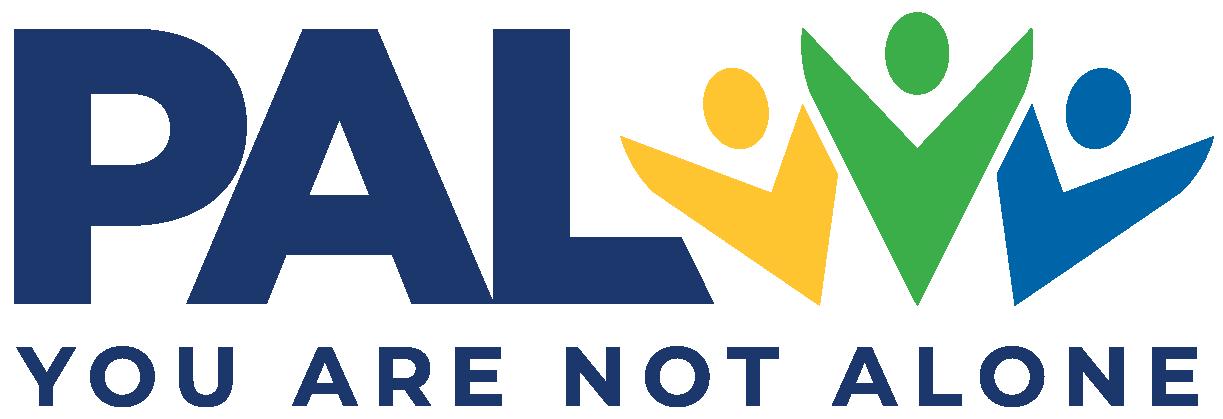
At a recent PAL meeting a distressed mother said, “I’ve cut financial strings, my son no longer lives with me and I’m limiting how many phone calls I take because he only calls when he wants money or is in a crisis, so I guess there is nothing else I can do?” This is a frequent remark I hear from parents. We tend to feel as if “we aren’t doing anything” when we hold a boundary and begin stepping out of the drama of our loved one’s lives. Have you ever found yourself thinking, there must be something more I can do but you just can’t put your finger on what that is? That is exactly where I found myself roughly ten years ago when I had exhausted every idea I could come up with to “help” my adult sons. At the urging of my PAL facilitator, I finally reached out to a qualified substance abuse and family counselor and started navigating the tumultuous journey within my own head as to what I would do next to “help.” Somewhere along the line, I had embraced the message that I had no right to be happy and free as long as my sons were stuck in their disease. “We” were in this together.
Over the next two years as my sons continued to spiral into the depths of addiction, homelessness, and incarceration, I began to embrace the idea that as long as we were all living, I would always be a role model to my sons and have some element of influence. It was up to me to decide what kind of role model I would like to be. Did I want to send the message that they had “ruined” my life? No! Did I want them to look at me and say, “Why would we want to grow up and be miserable like mom?” Of course not. It had never occurred to me that I was doing exactly that. I had been adhering to the concept that I was in this with them, and “we” would be “in the trenches” together so to speak, having no fun until this problem “of ours” was resolved. Once, during one of the many conversations with my older son that involved me offering endless unsolicited advice and suggestions, he said, “Mom, I wish you would get your own life!” I began to realize, slowly, (did I mention that I was a slow learner?), that even though my son consistently asked for my resources, he really did want me to move on with my own life and step out of his.
What a concept, as parents, to wrap our heads around. The idea that if I stopped trying to solve all of my sons’ problems, they might actually “step into” their lives and start working on some of their own issues, without my help. What if I could “role model” what a healthy adult life looked like? What if, (this is the one that got me on board), it might give my sons hope to see me enjoy my own life? A step further, what if I told my sons they were never responsible for my happiness in the first place and apologize for accidentally leading them to believe that they were? Whoa! I know what you’re thinking. I thought the same thing. This sounds a lot like abandonment! This sounds like I’m giving up on them. This sounds unloving, uncaring and the list goes on. It came to my attention, that if done properly, I could “step out” and allow them to “step in” and start gaining some self-esteem by solving their own problems.
Now let’s be clear about something. In the world of substance use disorder, there are no guarantees. This is extremely high-risk behavior that we know leads to death if left untreated. I’ve seen it firsthand and most of you have as well. In my experience talking with parents, this is where most of us get “hung up.” What if something bad happens while I’m off having fun being a positive role model? The question that was proposed to me back then was, “is your way working?” Have you managed to coerce them into recovery and sobriety with your endless nagging and criticizing? Well, no! Things seem to be getting worse the more I try to “help.” If any of this resonates with your story and you feel like “your way” is not working, here are some ideas for you. And as we like to say in PAL (and I have applied this thinking to pretty much everything I read or hear these days), take what works and leave the rest! As a healthy parental role model, I can:
- Work on accepting the way my loved one chooses to live.
- Be a tireless cheerleader. I will always convey my belief in my loved one by saying things like, “I know that you can beat this problem” and “I’m pulling for you,” “I will always be for you, never against you” and “you have everything it takes to get through this.”
- Always be a learning and growing student.
- Find a way to help and serve others in my community.
- Practice healthy self-care by taking care of my physical and mental health.
- Go on a vacation and if necessary pretend to have fun even if I’m not!
- Listen to professionals and choose to do what they suggest.
- LISTEN more rather than ask inappropriate questions and offer unsolicited advice.
- Work on being compassionate and nonjudgmental.
- Take responsibility for my own attitude and happiness.
Before I began implementing some of these new habits, I told both of my sons that they were going to start seeing some changes in me. Of course, neither one believed me and one of them even laughed out loud and said, “That will never happen Mom!” After all, I had trained them personally. But, over the course of time my older son really started to notice and even said to my husband and I that he felt we were abandoning him. We told him that we could absolutely understand why he would feel that way but that we would never, under any circumstances, abandon him. We would always be there for him. We shared that at times we were simply in too much pain to be with him in person but would always be with him in spirit, praying him on to restored health.
Today, when my sons tell their stories, they share how it helped them to see us start living our own lives again. They share how they carried the burden of “meeting our expectations” for so many years and how it weighed them down. They share what it felt like to finally feel that it was truly up to them face the pain of changing or not changing and that either way, pain would be involved.
My challenge to you is this: If your way is not working, think about trying a different, healthier approach? One that can be done in a loving, kind, compassionate way that will send the message that life is good, it is worth living, and the pain that we go through to get there will be a distant memory when all is said and done.
Blessings,
M.
PAL Facilitator, Coach – Partnership to End Addiction and college certification in Addictions and Substance Use Disorders
Our regular counselor blogger Josh Acevedo is on break for the next three months, so we are bringing you perspectives from a PAL Facilitator.
